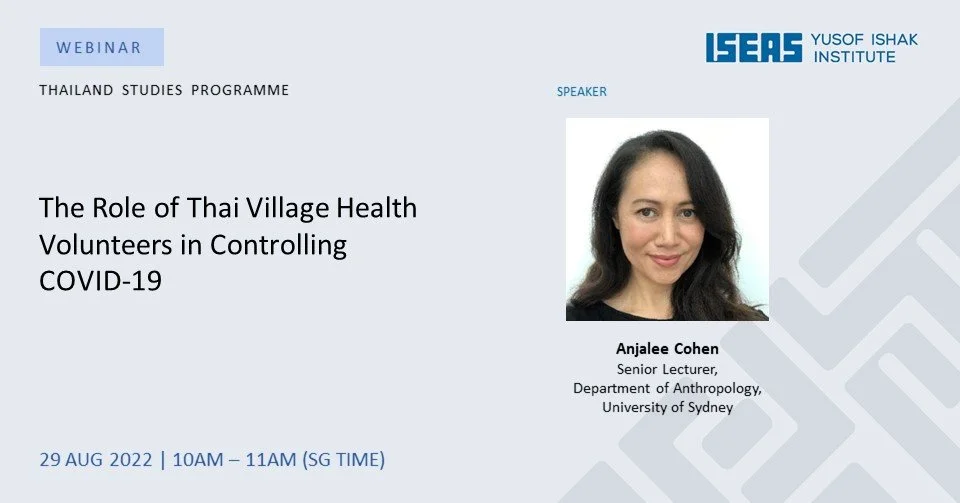Organizer: ISEAS - Yusof Ishak Institute.
Description:
Thailand was the first country to detect a case of COVID-19 outside of China on 13 January 2020. In 2019, Chinese travelers comprised the largest number of tourists in Thailand, accounting for more than a quarter of nearly 40 million people that visited the country. Despite this, COVID-19 cases and related deaths were remarkably low prior to a surge in cases in ) April 2021. As of mid-October 2020, Thailand recorded only 3,652 COVID cases and 59 COVID-related deaths. It was hailed by the World Health Organisation as a success story in responding to the pandemic. In January 2021 Thailand was ranked fourth best in handling the COVID-19 outbreak, out of 98 countries, according to a Lowy Institute analysis. The low rates in infection were linked to Thailand’s well-established and well-resourced public health system. Village health volunteers, who form the backbone of Thailand’s primary health care system, were critical to early success in managing the pandemic. Drawing on preliminary research in Chiang Mai, Northern Thailand, this webinar examines some of the reasons for this success and the important role that primary health care continues to play in controlling COVID-19 and other infectious diseases in Thailand.
Speaker:
Anjalee Cohen is a Senior Lecturer in the Department of Anthropology, University of Sydney. She specializes in medical anthropology and Northern Thailand and is the author of Youth Culture and Identity in Northern Thailand: Fitting In and Sticking Out (2020). Her current research focuses on the role of Thailand’s village health volunteers in preventing and controlling the spread of COVID-19 and other illnesses.
Click here to register.

